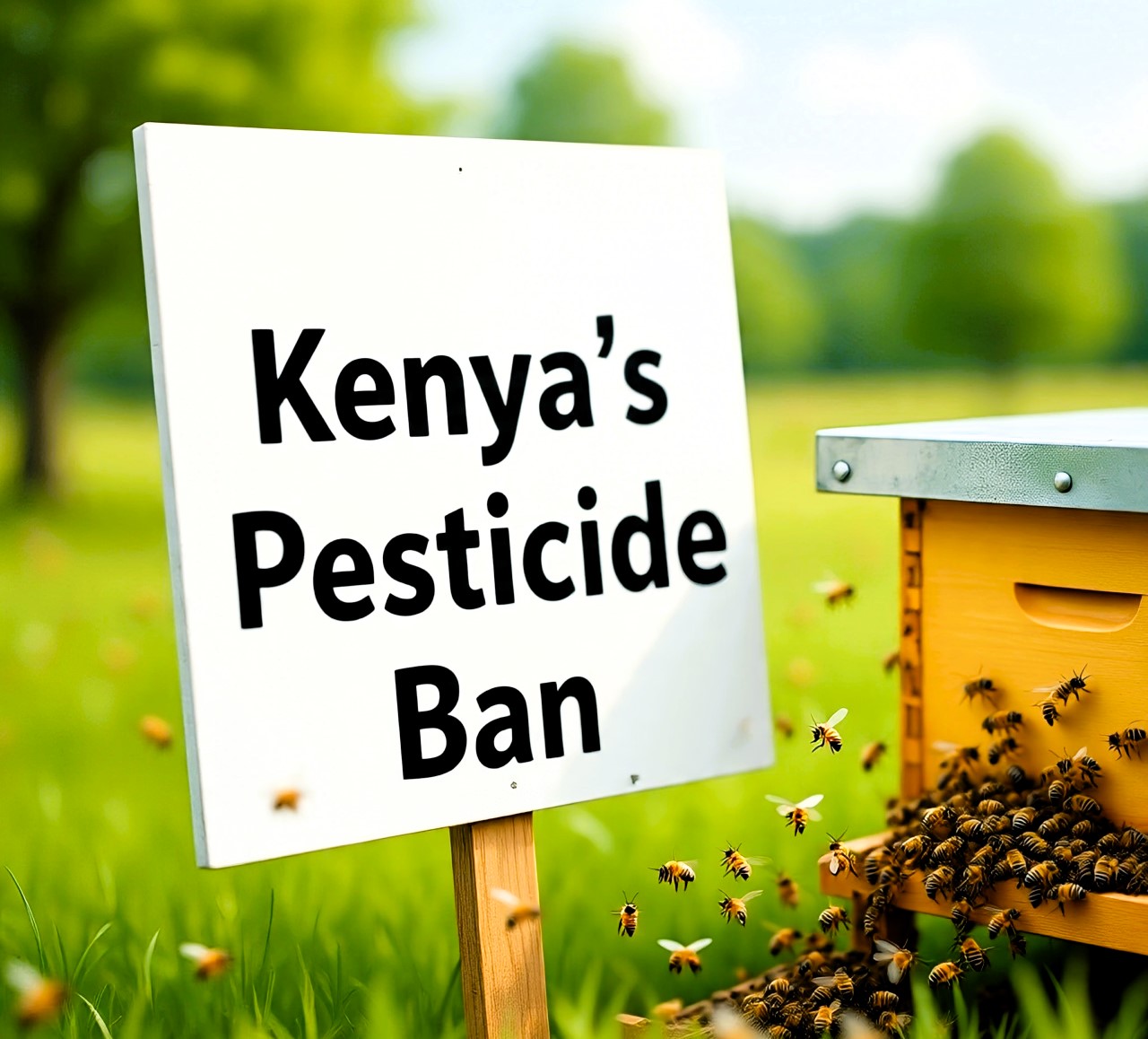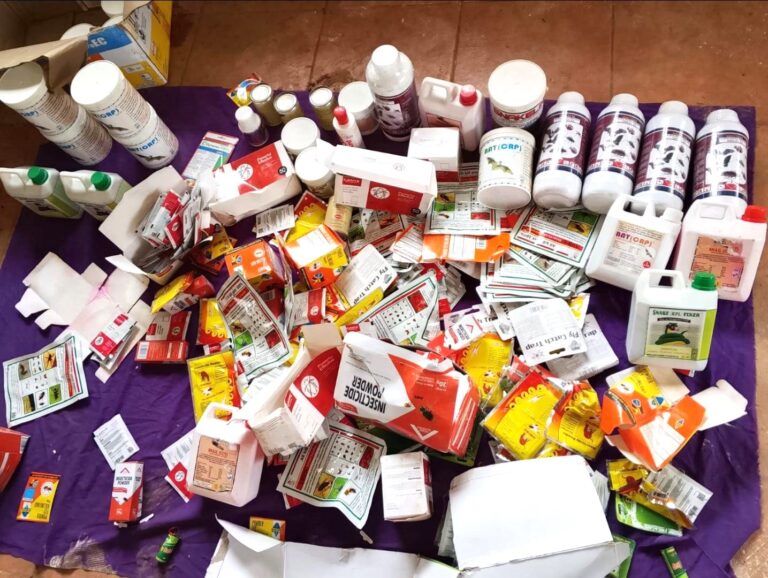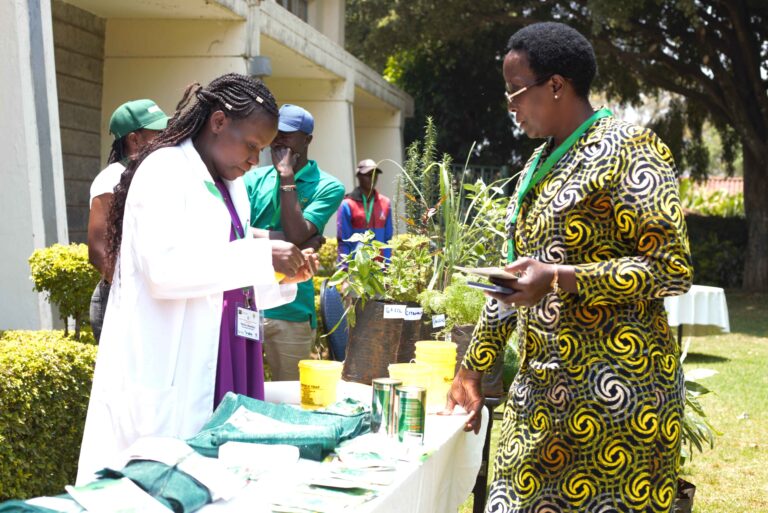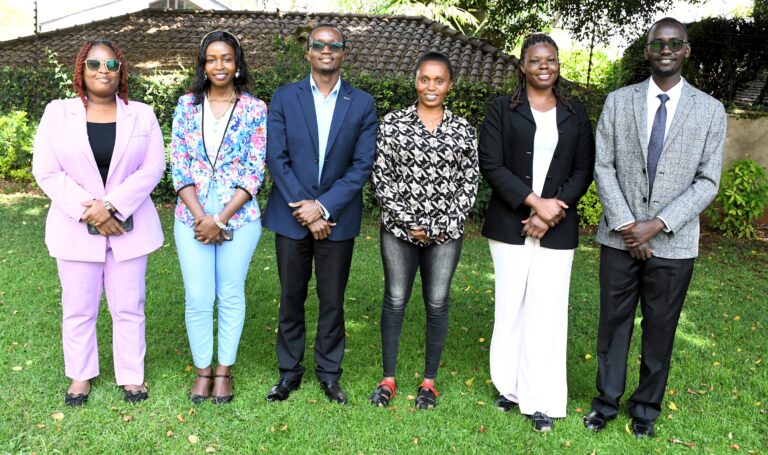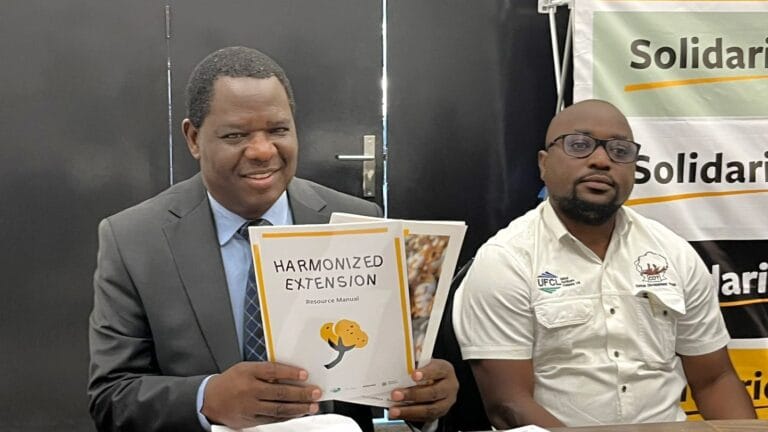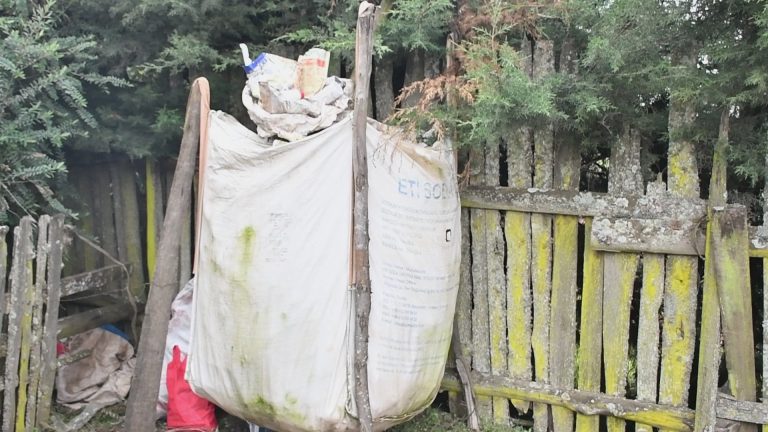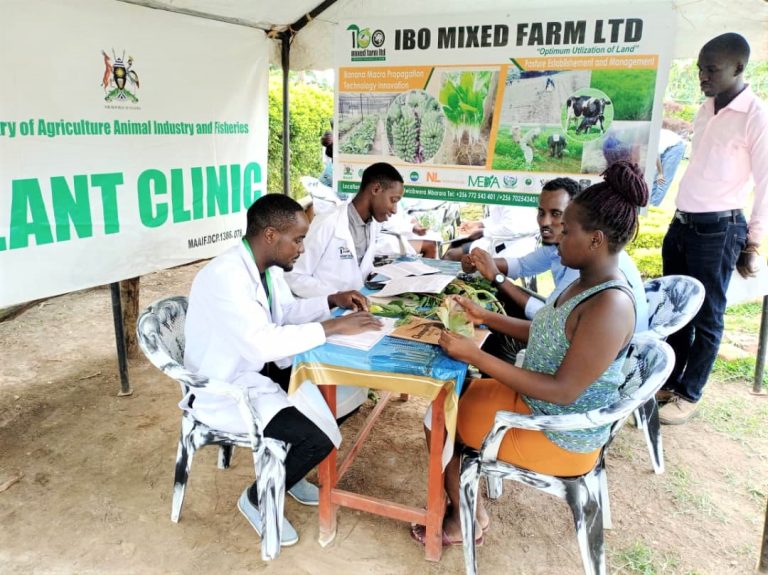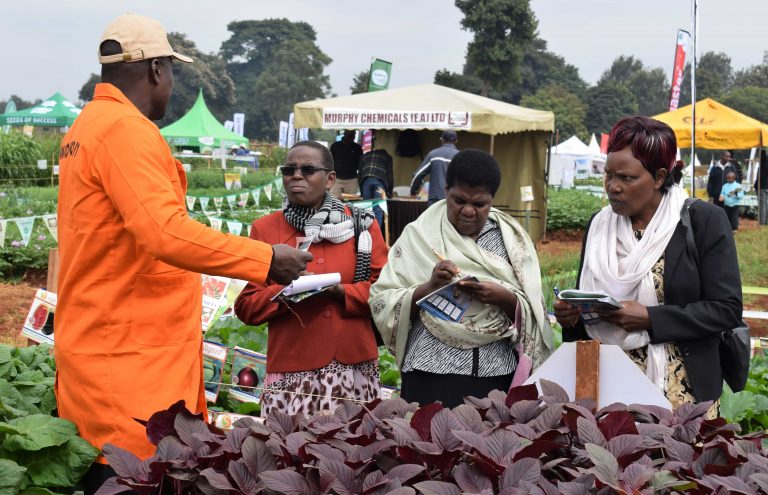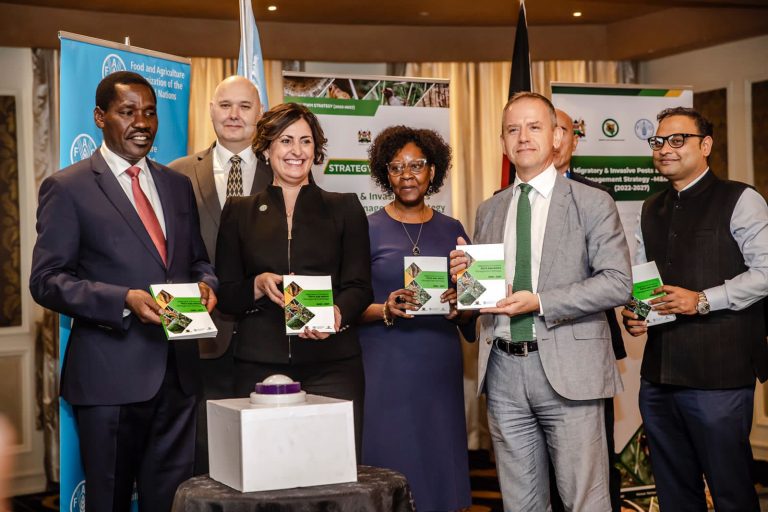By Kimuri Mwangi
The Kenya National Farmers’ Federation (KENAFF) fully supports the government’s action to phase out pesticides that compromise food safety and ecosystem health. The federation states that this is a crucial step in aligning Kenya’s agricultural practices with international safety standards and safeguarding consumers from the long-term health risks associated with unsafe chemical residues.
“In recent years, the widespread misuse of highly hazardous pesticides has posed significant risks to the safety and quality of food consumed by Kenyan households. Chemicals such as Chlorpyrifos, Dimethoate, Imidacloprid, Mancozeb, and Glyphosate-based products have often been applied improperly to staple and horticultural crops. Such practices not only leave harmful chemical residues in food but also degrade soil health, pollute water sources, and endanger beneficial pollinators that are vital to Kenya’s food systems,” says KENAFF Chairman Prof. Kaburu M’Ribu.
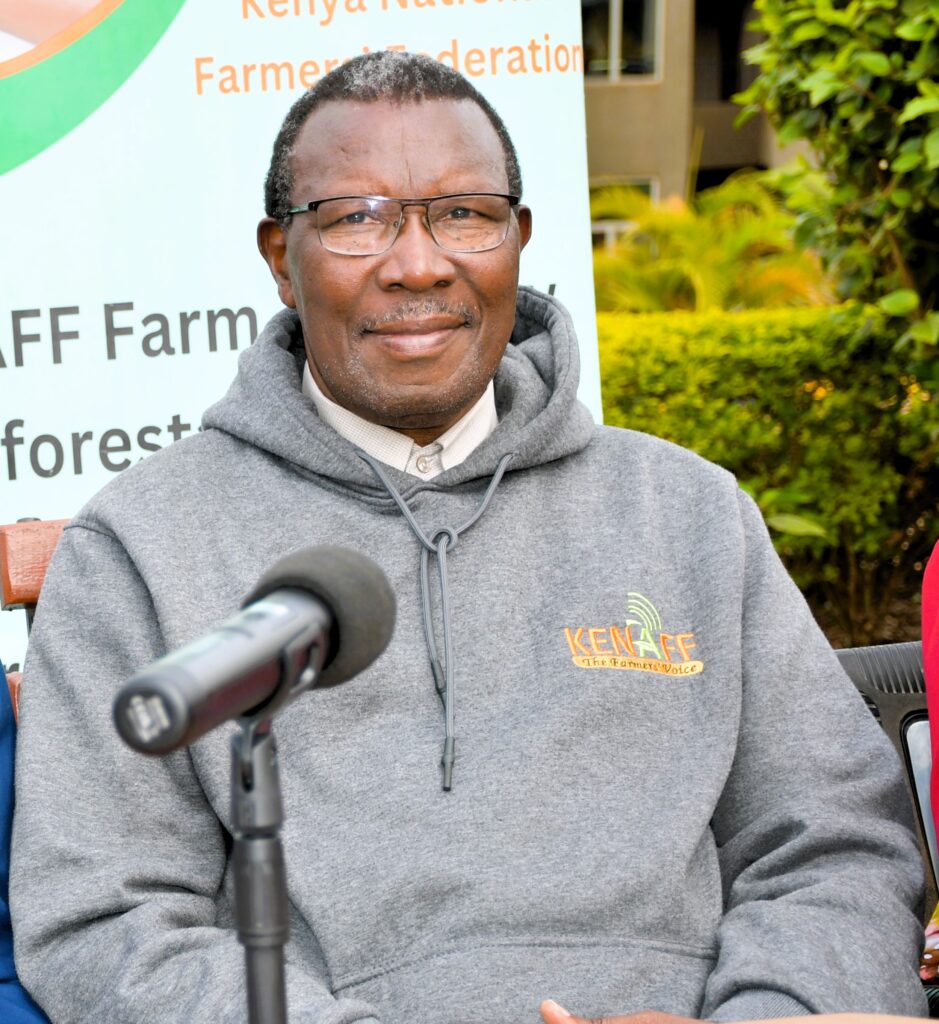
The federation is particularly concerned about the continued use of unregistered and unsafe chemicals on crops. “For example, Dimethoate is now restricted to use as a termiticide and has often been sprayed on fruits and vegetables, while Imidacloprid, a neonicotinoid highly toxic to bees, is still being misapplied in open fields. Such misuse leads to pesticide residues that frequently exceed international food safety thresholds, jeopardizing both domestic food security and Kenya’s agricultural exports.”
KENAFF urges farmers to adopt safer, more sustainable alternatives, including Integrated Pest Management (IPM) methods, and to always consult qualified agricultural extension officers before applying any pesticides. Farmers are also reminded to read and follow label instructions diligently, wear appropriate protective equipment, and observe recommended pre-harvest intervals to ensure that produce entering local and export markets is free from unsafe chemical residues.
It, however, says that the success of the ban will depend on robust and consistent enforcement of these regulations, alongside practical farmer training and support to transition towards more sustainable crop protection methods.
“KENAFF calls on the Pest Control Products Board, county governments, agricultural extension officers, input suppliers, and stakeholders across the agricultural value chain to work together to ensure compliance with the new rules. Protecting the health of our farmers, consumers, and environment requires collective responsibility and unwavering commitment to responsible pesticide use,” opines the Chairman.
KENAFF also says that farmers continue to suffer because they are not receiving the extension services the way they should, adding that a lot of farmers are running their enterprises using outdated knowledge.
“We want to position ourselves as an organization that offers value chain based technical advisory services to our members, the farmers of Kenya. And we’re going to do this using not only the conventional ways of doing this, which means workshops and farmer days and peer-to-peer exchanges where farmers learn from each other, but we are going to leverage ICT tools because many ICT tools can be leveraged from a USSD code, which is a very old technology, but very accessible by many farmers. We are also going to use short online videos through what we’ll call the farmers’ organization video library, which will be open for anyone with an internet connection. You can go there and look at maybe how to take care of your cow, how to take care of your coffee, how to take care of the quality of the health of your soil, how to take care of the environment and many other things,” says the CEO Dr. Daniel Mwendah.
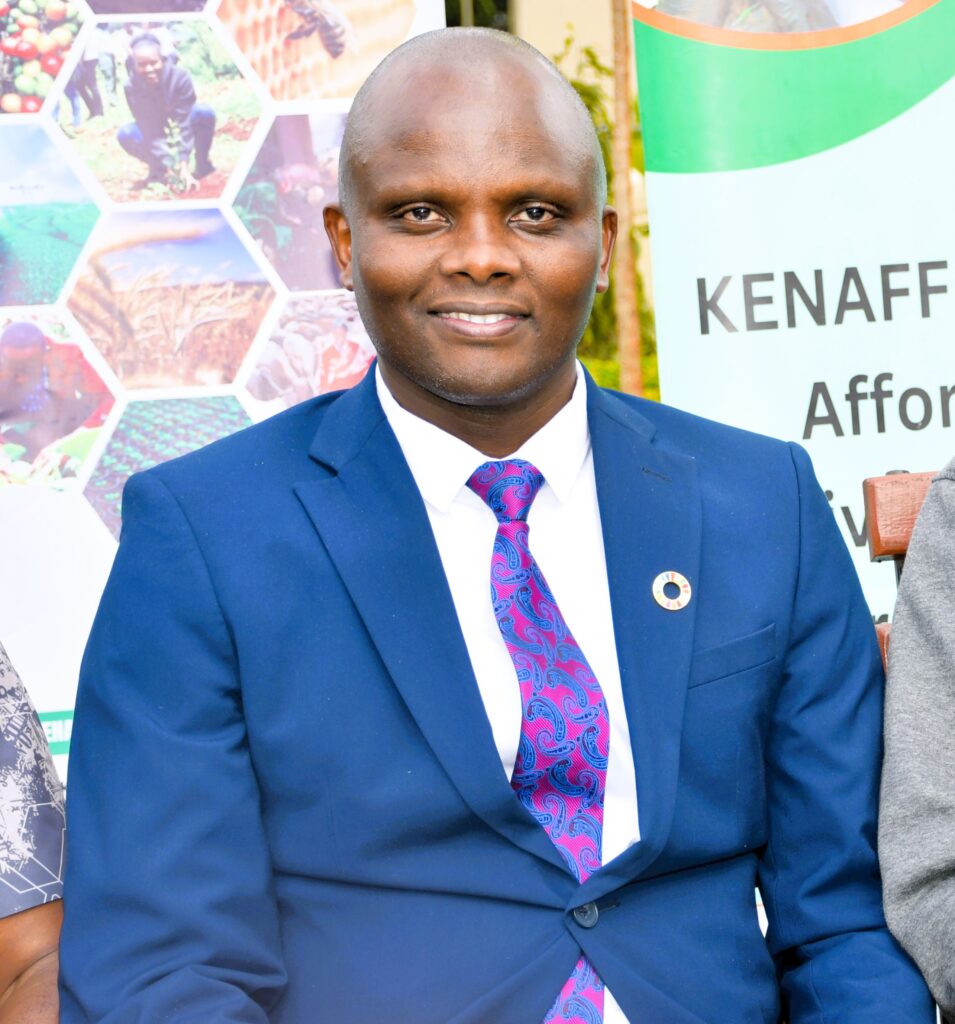
Dr. Mwendah says they are also going to develop several apps and platforms to reach out to as many farmers as possible. He is calling on partners, including the government, both at the national level and at the county level, to join them in accomplishing this.
“We are going to work a lot with county governments since agriculture is involved, but we’re going to ensure that farmers get appropriate advisory services that are informed by the enterprises they are practising. If it is maize, we’ll bring you knowledge, innovations, and management practices around maize so that you can produce better. If it is coffee, we do the same thing,” says the CEO. Kenya, he adds, should not be left behind as other countries adopt technology. “We’ll be calling upon different partners who are in this space to work with us to ensure that we leverage all these available tools, ICT tools, including artificial intelligence, because we realize there are farmers around the world, including South Africa, Botswana and Lesotho, where farmers are using artificial intelligence to learn on how best to enhance production and productivity. We think a country like Kenya, which is world-renowned in digital applications, should not lag.”


